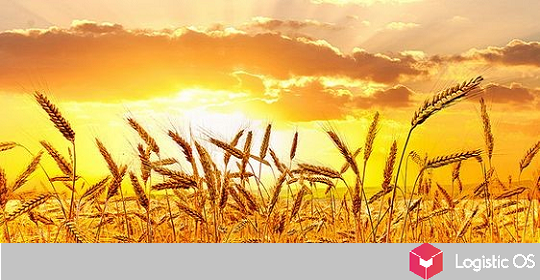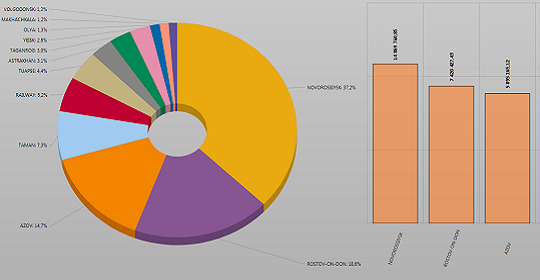In 2023, the volume of Russian agricultural exports to China increased significantly, growing by 34%.
China is currently becoming the most important trading partner of the Russian Federation. This is also noticeable in the field of trade in agricultural products.
At the moment, China’s share in the structure of Russian agricultural exports is already approximately 20%.
According to the Ministry of Agriculture of the Russian Federation, during 2023, over 9 million tons of agricultural products were exported from Russia to China, while the total volume of bilateral trade increased to $11 billion.
In particular, agricultural products worth about $9 billion were supplied from Russia to China.
What does China buy most actively?
In first place in the structure of Russian agricultural exports to China is frozen fish with a share of about 18%.
China is also actively buying rapeseed oil (17%), crustaceans (14%), sunflower oil (10%) and soybeans (8%).
In general, over the past year, the most significant increase has been in the supply of vegetable oils, experts say.
As OleoScope analyst Kirill Lozovoy noted, over the past year the Russian Federation sent about 2.45 million tons of vegetable oils to China. This is significantly more than in the previous year, when the volume was about 1 million tons.
As a result, China has now taken first place in terms of export volumes of vegetable oils from the Russian Federation, displacing India and a number of other countries.
“Last year, export prices remained at a fairly low level — this increased the competitiveness of Russian products on the world market.
Now that quotes have begun to rise, the situation has changed a little,” Lozovoy noted.
What are the future prospects?
Denis Ternovsky, a research fellow at the Center for Agricultural Policy at the Institute of Economics and Economy of the Russian Presidential Academy of National Economy and Public Administration, believes that the growth of supplies of Russian agricultural products to China will gain momentum.
In particular, this can be achieved by increasing the Russian production base and demand from China.
Also a significant factor is the improvement of the logistics infrastructure in this area.
By the way, an important achievement of Russian farmers was that they recently managed to obtain permission to import Russian pork into China. But there is no certainty that these supplies will be able to be scaled up, because at the moment China as a whole is reducing imports of pork and its dependence on foreign supplies of this product.
In the next decade, the reduction in pork supplies to China could be up to 60%, experts warn, so Russian producers should definitely take this trend into account.

